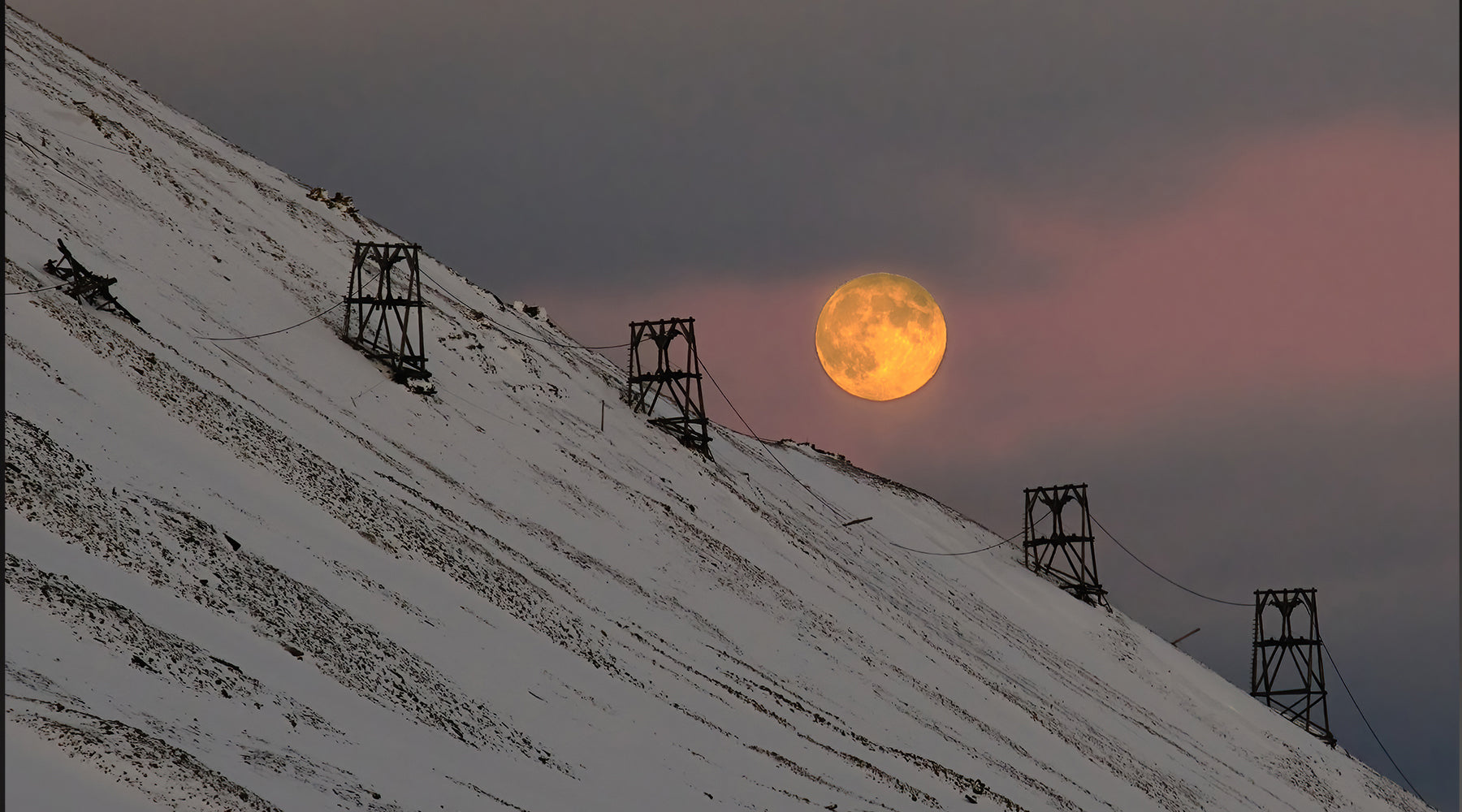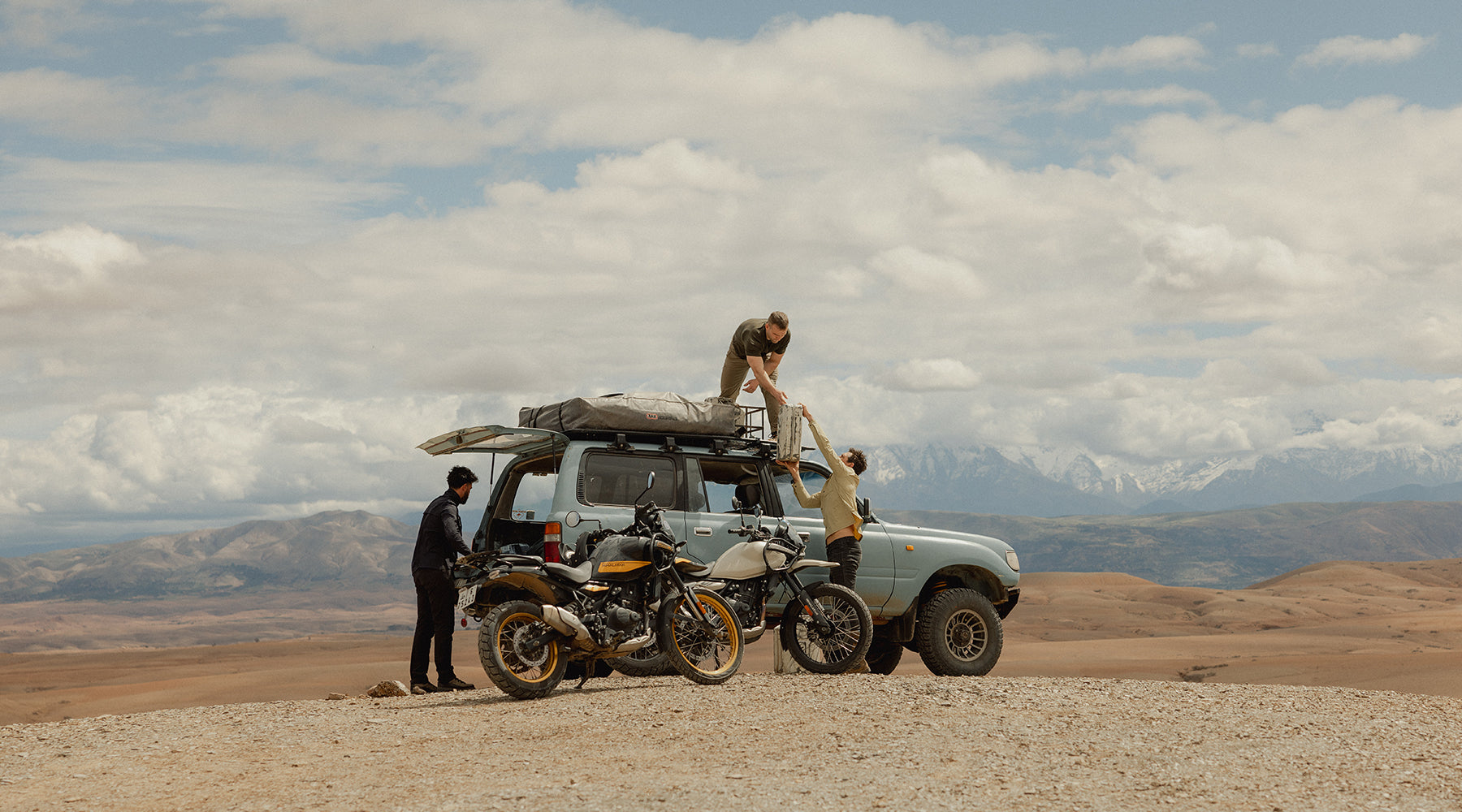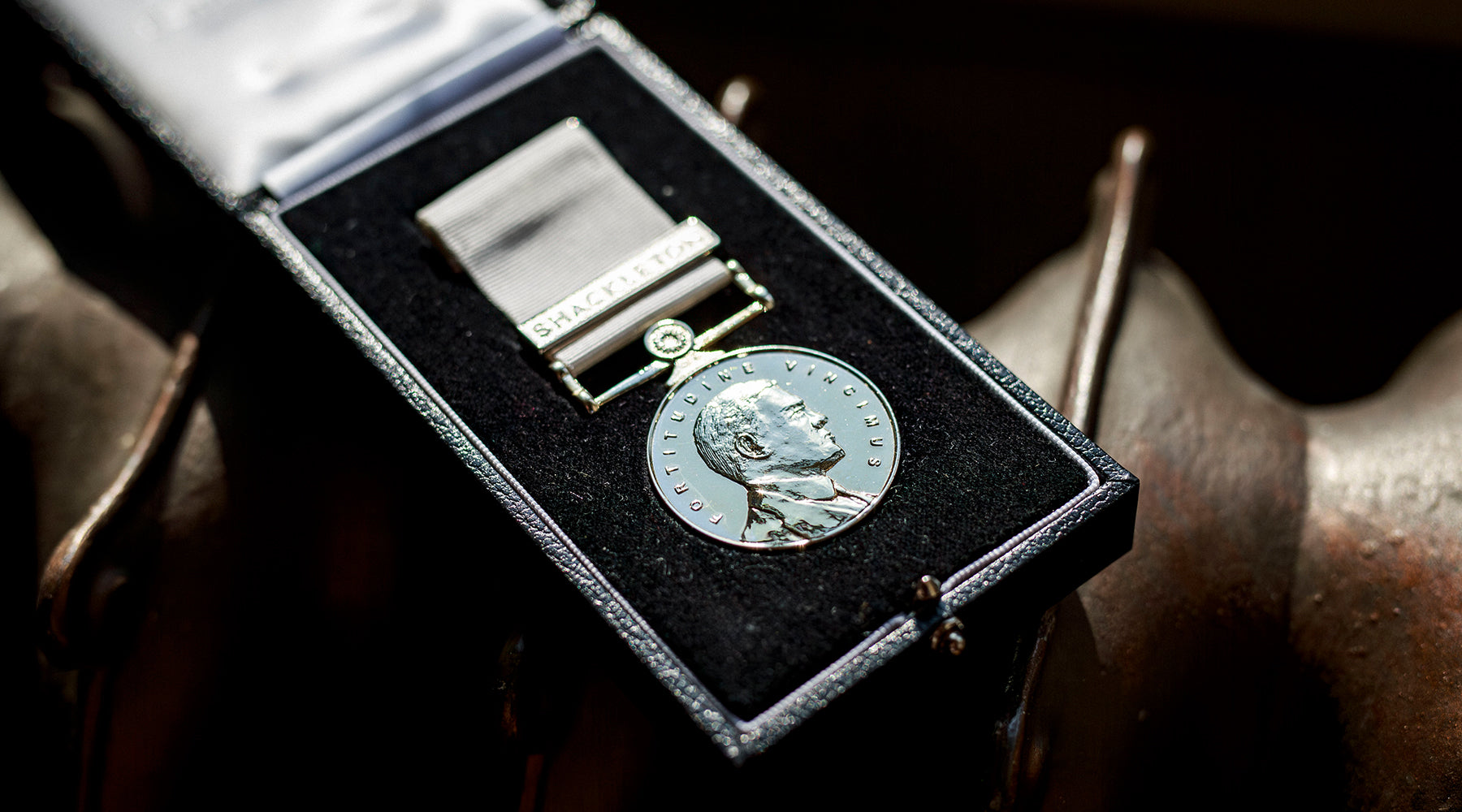
“CRISIS AND ADVERSITY ARE NOT NEW; WE HAVE MET THEM BEFORE AND WE WILL MEET THEM AGAIN,” Ernest Shackleton
THE FIRST THREE YEARS OF THE SHACKLETON MEDAL HAVE REVEALED THREE EXTRAORDINARY INDIVIDUALS CONTINUING SHACKLETON'S LEGACY AT THE POLES. IN THIS FOURTH YEAR, WE ARE VERY EXCITED TO ANNOUNCE THE FELLOWSHIP OF SHACKLETON WINNERS.
Tom Cruise and Mission Possible

When Tom Cruise announced his plans to visit the archipelago of Svalbard in 2023 to film the eighth instalment of Mission Impossible, the reaction was chillier than he had anticipated. The problem wasn’t Cruise himself, but the fact that Mission Impossible’s production company wanted to whirl in with 40 helicopters for the shoot. The local authorities threw their hands up in alarm and refused to issue permits. They said that the invading swarm of helicopters would disrupt the local species – which include arctic foxes and polar bears – as well as their environment.
At first the production company challenged the authorities, but a few days later announced that they had found a way round the impasse. No one has commented publicly on how things ended so happily, yet it was around this time that a startling social media announcement came from the first winner of the Shackleton Medal For the Protection of the Polar Regions. “Mission: accomplished” was the title of Heïdi Sevestre’s post. “It was such a privilege to take Tom Cruise on an ice cave adventure here in Svalbard and show him the beauty and significance of ice,” she continued. “An absolute dream come true.”
It’s not difficult to imagine why the powers that be in Svalbard would have seen Sevestre as a dynamic and engaging advocate for preserving the natural environment. In that first year of the medal, the judges were clearly impressed by her physical bravery – at one point on a previous research trip, she and her all-female team of scientists had needed to bury themselves in snow to protect themselves from a storm. Yet it was her passion and facility for communicating her expertise as a glaciologist – whether in front of global politicians or to teenagers through TikTok – that really marked her out. It should be said that Sevestre has revealed nothing about her conversation with Cruise, but it wouldn’t be too much of a gamble to bet that that ice cave adventure helped with the happy conclusion.
Four years on from the medal’s launch, one of the most rewarding aspects has been seeing the sheer variety of ways in which she and the other winners are continuing to protect the poles. This formidable group of three – soon to become four – are waking the world up to everything from the politics of icebreakers to the dramatic decline of Canada’s caribou population. In a world where Trump and his followers are strategically dynamiting environmental legislation and the organisations set up to protect it, their work has become ever more vital. That’s why, in this fourth year of the award, we are setting up the Fellowship of the Shackleton Medal for the Protection of the Polar Regions, as a way of asserting our continuing admiration and support for our winners.
The importance of getting the word out
“Winning the Shackleton Medal…really helped highlight the necessity of not only conducting scientific research in remote and crucial environments but also effectively communicating these efforts to a broader audience,” said Sevestre when we contacted her. “This recognition has truly helped me to keep pushing forward in this direction.” Over the last two years she has won a Veolia Foundation Environmental Book Award for her Sentinelle du Climat (Climate Sentinel) as well as going to Greenland to appear in the National Geographic documentary Arctic Ascent, fearlessly scaling vertiginous rock faces alongside the climber Alex Honnold. More recently she has expanded her geographical reach, collaborating with UNESCO and the Uganda Wildlife Authority to help restart the process of monitoring glaciers in the Rwenzori Mountains – the highest and most permanent sources of the River Nile.
Front page news

Our second winner, Pen Hadow, was already well acquainted with attracting international attention after his successful solo unsupported trek to the North Pole in 2003 landed him on the front page of The Times. What he witnessed in terms of the dramatically receding ice led him to set up the Catlin Arctic Survey, in which – from 2007-2012 – he guided teams of scientists so they could investigate the rapidly changing environment of the Arctic Ocean. So when his name came up in front of the judges in 2023, it was in the context of his already having an impressive reputation for exploration and climate advocacy. But he had not been content either to hang up his skis or rest on his laurels, and in 2021 he had set up 90 North Foundation, a charitable organisation devoted to safeguarding the biodiversity of the Central Arctic Ocean.

Photo credit Graeme Chesters.
“Being recognised by the highly influential panel of judges had the impact of refreshing my status as an advocate for the polar regions,” Hadow told us two years after receiving the medal. “For key organisations who were considering giving money to 90 North Foundation it was an endorsement – support from one company came just months after I won the award.”
In February 2003, Hadow had established an Arctic Ocean Research Unit in partnership with Exeter University. Over the last two years he has built it up with the formidable support of 90 North Foundation’s Research Director and talented polar photographer Graeme Chesters (previously Associate Professor in Peace and Conflict Studies at Bradford University). One of their most exciting projects is the annual Arctic Ocean Shipping Vessel Report, which will analyse cutting edge AI-processed data on every single maritime vessel in the Central Arctic Ocean – particularly crucial as the Arctic increasingly becomes a geopolitical hotspot. Beyond that, Hadow’s working to fund a new generation of campaigners for the poles, by raising funding for five PhDs within the Arctic Ocean Unit. He’s been spreading the word on his mission everywhere from the BBC’s Great Lives to the New Scientist.
If you take care of the land, the land will take care of you

After two years focusing on the ice, last year saw the Shackleton Panel of judges turn their attention to the Boreal Forest – the circumpolar belt which stretches from Newfoundland to the Yukon and has a huge impact on the Arctic. It’s one of the planet’s biggest carbon sinks, though it’s a significant concern that thawing permafrost and intensifying forest fires are gradually turning it into a carbon source. Our third winner, Valérie Courtois, has worked tirelessly for its preservation, as executive director of the Indigenous Leadership Initiative, a powerful and revolutionary scheme that brings together First Nations individuals across Canada as “Guardians” to preserve the environment. Our money on her being Canada’s first Indigenous Prime Minister, but for the time being Courtois (who was also named by Time Magazine one of their top 100 Climate Leaders in Business for 2023) is making her name as a pioneer in land guardianship.
“I really consider it a feather in my quill,” she said of the medal when she came to London this year to attend a summit for the Sustainable Markets Initiative, which was founded five years ago by King Charles. “As Indigenous Peoples in North America and Canada we have gained our spaces, where our work is recognised. But outside, sometimes there is not necessarily a recognition of our peoplehood and our nationhood and therefore the role we should be playing in discussions.”
Courtois has several projects in the pipeline, not least a plan to start a program for Indigenous “fire guardians” to help tackle wildfires. Beyond this she’s particularly excited about a new documentary that the ILI has made in partnership with the Royal Canadian Geographical Society that’s been directed by the famous Indigenous filmmaker Jennifer Podemski. “It’s about the Guardians,” she says, “it features the Innu nation program in Labrador, which I helped grow and manage, as well as the program in Bella Bella in British Columbia. So it’s a broad survey of what the Guardians are and really tracks the implications of the movement as a whole. We’re also working with the RCGS to build a curriculum for public schools in Canada so pupils can learn more about indigenous-led conservation.”
Search for the next member

Apart from anything, the three individuals who have been awarded the medal over the first three years have proved there’s no typical “winner”. While the award has been set up to continue the legacy of Ernest Shackleton, it’s been a fascinating part of the process to realise the sheer variety of the people who live according to his values. Now the search is on for the next individual to join the Fellowship, and the deadline for this year’s nominations is April 18th. If you’re aware of someone who is demonstrating courage, determination against the odds and leadership in their fight to protect the poles, and by implications the environment, please let us know. For while the medal brings a message of hope, we all know that it does so in the context that each year the need for such individuals is becoming more and more urgent.
By Rachel Halliburton


